Message from Renee: Play Has Always Been in Fashion
Renee’s Opening Remarks:
Welcome to the 2024-2025 school year at Columbia Greenhouse Nursery School. We are thrilled to start the year with old friends and families and eager to meet and get to know our new friends and families.
There is much conversation about the state of childhood in America today. You would be hard-pressed to not have heard an interview with or read an article this summer about Jonathan Haidt’s (2024) book “The Anxious Generation.” Also, earlier in the year, Peter Gray’s et al. (2023) landmark work on the decline of play and its effects on children’s mental health painted a similar bleak picture. The big take away from both of these important pieces of research is that today’s adolescence and young adults are struggling in new and significant ways. Both draw theories of causal inferences between many things including sweeping society and education changes, technology, early social media and internet use. Whether they make their case for those relationships is not to be decided by us. Where they do get this early childhood educator hooked is when they talk about the ramifications of children’s relatively recent loss of independent activity or what Haidt refers to as a ‘play-based childhood.’ Both of these studies show that children today play considerably fewer hours each week than their counterparts in past generations and instead they are spending more time in structured adult-led activities. Instead of going to the park and kicking a ball around, our youngest children are now lined up by adults “or coaches” and instructed to wait their turn to learn how to kick a ball around. Instead of making a joyful noise with found items, children are attending adult-led music lessons. Instead of playing with numbers and letters, our children are going to academic tutors at younger and younger ages. In our attempt to “get them ready for…” or “keep them safe from…”, we are denying children the space, time and opportunity to enact their most natural, primal instincts – to play! While neither of these pieces of research suggest that the loss of play is *the* reason for young adult’s struggles, both do suggest there is significant reason to believe it is a major cause. Dr. Gray states:
“ the evidence convinces us that the decline in children’s independent activity [play] and, hence, in mental well-being is a national and international health crisis and should be treated as such.”
In short – what does this mean? I hope it means that play is making a come back – in all areas of children’s lives. Research is supporting the many developmental benefits and the need for child-directed play, including the benefits of play-based learning. And lucky for us – play has always been in fashion at Greenhouse!
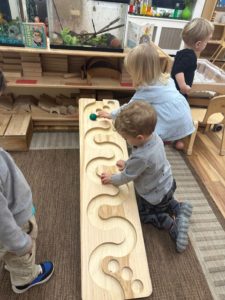
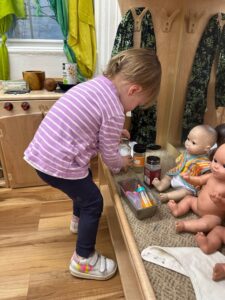
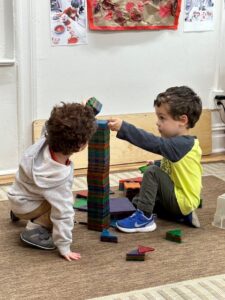
At Greenhouse, we have always held firm that it is a child’s basic right to play, explore and discover the world around them. Not only is it their right, it is the most natural and basic way young children learn. Play supports every area of a child’s developing brain, personality and learning. The innate desire to play burns deeply in all children; it is that magical spark of intrinsic motivation that universally moves children to think, act, and connect with others. In play, there are opportunities for physical growth: strong bodies, agile fingers, access risk, and try new adventurous things. There are opportunities for social learning: negotiating, communicating ones needs, hearing the needs of others, taking turns, and meeting the mind of others. There are opportunities for building self-esteem: confidence, competency and autonomy. There are opportunities for practicing the habits of mind of a learner: focusing, self-regulating, tolerating frustration, persisting, and building resilience. There cannot be enough said about the power and benefits of self-directed play! But that isn’t the only type of play there is!
While our classroom environments and schedules are designed around play and allowing children to make choices about their play, our teachers are vital members of that plan! They bring a wealth of professional knowledge, skill and understanding to their work with young children. Teachers design their environment to promote productive and creative play. Every material in the class has been thought about and placed there with reason. Teachers also understand that they, themselves, have a role in promoting and scaffolding children’s play and helping to move their thinking forward. While we absolutely value child-led play, we also understand the benefit of co-constructed play with a skilled adult. When our teachers join in the play, they do so as a co-constructor of knowledge; this is called scaffolding or guided play. The teachers might ask an open-ended questions to help move thinking forward like, “What do you think would happen if we tried a different ball?” A teacher may drop in new vocabulary in the context of the play, “This one is translucent; we can see through it. We can’t see through this one; we call that one opaque.” Knowing how to support children’s deep learning during play is one benefit of having highly skilled Greenhouse teachers as co-constructors of your child’s play. Our teachers are also expert at using playful learning during our teacher-led learning times, too.
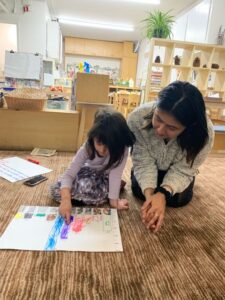
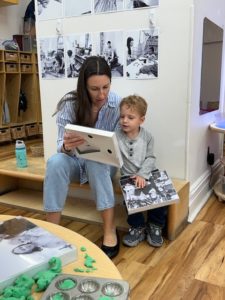
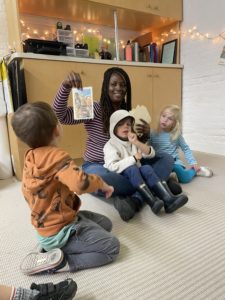
Our project-based pedagogy combines the power of inquiry, discovery and play to create the perfect conditions for academic, intellectual and social learning in our young children. Our projects begin deep inside children’s intellect, deep inside their curiosity, their questions, their wonder. The essence of intelligence lies within the act of thinking, within the having of ideas and the confidence to act on those ideas; intelligence is not found within the reciting of isolated pieces of information or in the giving of correct answers. During project work teachers are framing activities that allow children to actually practice thinking and learning; they are building the children’s skills in the full service of their intellectual pursuits and ideas. Projects provide us a context to discuss and share our ideas. There are countless playful opportunities for children to move their ideas from their head, into their world and into action. We want them to know in their bones that what they think (and not just what they know!) matters to us. We want them to speak their minds freely and never censor themselves because they are not sure they have the right answer. We want them to take risks with materials and ideas and build a strong foundation for a life-long love of learning.
Whether self-directed play, guided play with a skilled teacher or the play-based learning accomplished inside of a project, at Greenhouse we know — to play is to learn! We are proud of our long-time commitment to protecting children’s right to a playful, joyful childhood. And we are thrilled the research supports us and that the rest of the world is catching up!
Gray, Lancy, and Bjorklund. (2023) Decline in Independent Activity as a Cause of Decline in Children’s Mental Well-being: Summary of the Evidence (petergray.org)
Haidt, J. (2024). The anxious generation: How the great rewiring of childhood is causing an epidemic of mental illness. Publisher.
Zosh,J. Gaudreau C. Golinkoff R. Hirsh-Pasek K. The Power of Playful Learning in the Early Childhood Setting | NAEYC. 2022